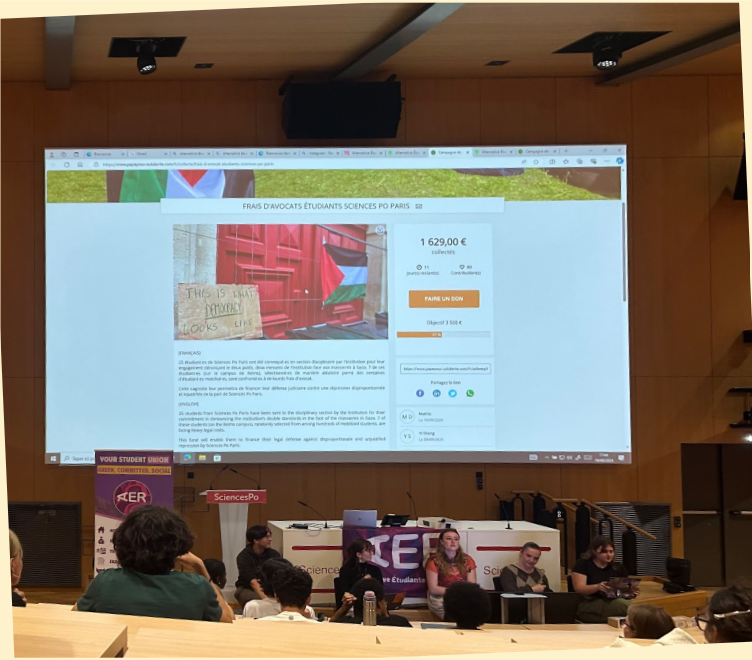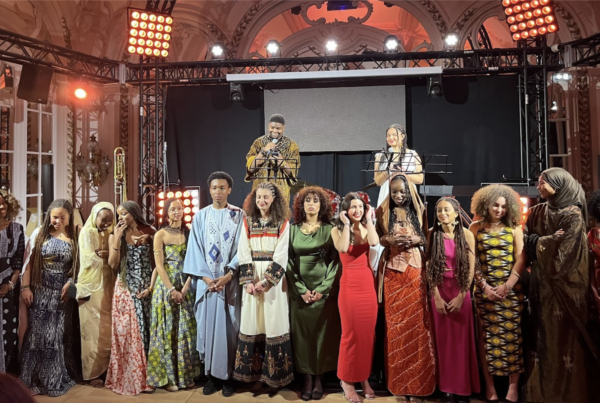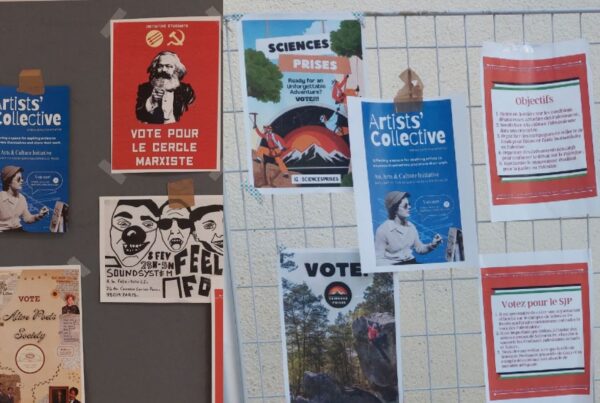This article originally featured in our Autumn 2024 printed edition.
The Alternative Étudiante Rémoise (AER) held its first general assembly on September 19 in the main amphitheater. Policy discussions included regularly meeting with administration, finding student candidates for Sciences Po’s Conseil de l’Institut, and implementing a guaranteed lunch time.

Image Credit: Sara Miyake-Singer
New year, same goals.
The Alternative Étudiante Rémoise (AER), the largest student union on campus, held its first general assembly on September 19 in the main amphitheater. During the assembly, which was attended by around 50 students, second year AER members discussed the union’s upcoming policies and goals for this academic year while offering membership to anyone who desired it.
The AER, which described itself during the meeting as “leaning left politically, but unaffiliated with any party,” is the Reims branch of the national “Union Étudiante.” The group was formed in 2023 following the fusion of “the Alternative” and several independent unions formerly part of the UNEF. Nationally, the union is the most represented group in the elected bodies of the CROUS, the organization providing students in France scholarships, residences, cultural activities, and restaurants.
Much of the assembly’s discussion pertained to the AER’s dissatisfaction with various procedural aspects of Sciences Po. One of their chief concerns involves our institution’s centralization of most matters, with even those specific to just one campus being resolved in Paris. The AER members felt that this led to issues concerning sexist and sexual violence (VSS), access for handicapped students, and the inefficient management of student associations.
“We want to foster a sense of continuity with last year but still start up new things,” AER activists Ninon, Baptiste, and Mathilde said. “Our main message to new students is that we are here to represent and aid those in the union. We align ourselves with antiracist and antisexist organizations and hope to instill policies to fight these issues in Sciences Po.”
To resolve said issues, AER members hope to regularly meet with administration, represent students at Sciences Po’s Conseil de l’Institut, and organize events to better inform Sciencespistes about feminist policies. An additional administrative policy they aim to implement is to allow students who have classes during both the 10:10-12:10 and 12:20-14:20 time slots to get time to eat lunch.
Last year’s protests for Palestine were also addressed. The AER made it clear that although they “endorsed the protests” and their pro-Palestinian message, union members were “not the ones who organized them,” even if some partook in demonstrations. The union, however, hopes to organize more sales events to support Palestine as the issue is “at the heart of [their] reflections.”
“We tried to support the pro-Palestenian demonstrators by speaking out about what was occurring via traditional and social media. As a student union we denounced, in a legal manner, the conditions under which the final exams were held, the police presence on campus, and the general repression of students,” the AER advocates said.
Notably absent from the meeting were non-French speakers. Indeed, the meeting was entirely in French with the AER speakers all being French students. Amongst the two types of members in the AER – general members and activists – the AER stated that very few were international. Part of the reasoning for this is the precarious status of many international students’ visas.
“There are a lot more risks for international students than French students. When it comes to protests, there are a lot less international students involved. We’re scared they will lose their visas. If a protest isn’t going well we try to make sure international students can safely leave so they are not put at risk. We sadly don’t have much power over this,” Ninon, Baptiste, and Mathilde said.
The AER activists explained that they do try to include international students during assemblies by offering translators, publishing memos in English, and allowing students to speak in whatever language they are comfortable with. Still, they admit that “there are many things [they]could work on [to incorporate more international students.]”
“Issues such as administrative aspects – lunch standards and scholarships – are open to all students to discuss but in terms of activism, it’s more French-centered,” the AER advocates said. “We try our best to represent people in our policies and we always feel like we can improve. We know there are many issues which are international student- centered and we have a hard time understanding them. So we definitely want to represent that. This is especially true due to the difficulties involving French administration and the system being ill-adapted for those who don’t speak French. We want to hear people’s opinions and we’re always doing our best.”
Other posts that may interest you:
Discover more from The Sundial Press
Subscribe to get the latest posts sent to your email.





